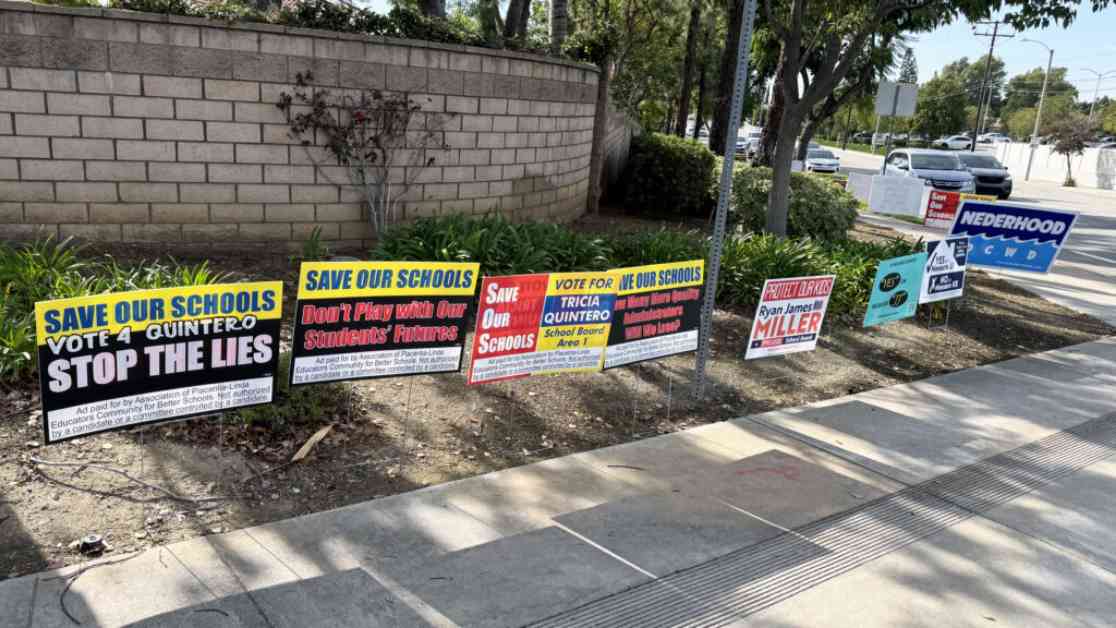School board elections have been a hot topic in California recently, with tensions rising between conservative and progressive candidates over educational policies regarding gender identity and racial equity. In the Placentia-Yorba Linda Unified School District, the results have been a mix of success for both sides.
For the Temecula Valley Unified school board, there has been a recall of President Joseph Komrosky, who was part of a conservative block that passed controversial policies. However, Komrosky and other conservative candidates endorsed by the Riverside County Republican Party are currently leading in their races, signaling a potential return of a conservative majority in January.
In San Jose Unified, Nicole Gribstad, supported by Moms for Liberty, is in the lead for a seat on the school board, despite facing opposition from the teachers union. If Gribstad wins, she would be the only conservative member on the board, highlighting the ongoing debate over what should be taught in schools.
In Orange Unified School District, the three incumbents seem to have secured re-election, signaling a level of stability in the district despite recent controversies and recalls. Interest in local races has grown, reflecting a greater engagement from the public on school board candidates and issues.
In Santa Ana Unified, there is a potential upset brewing as special education teacher Brenda Lebsack is leading over incumbent Rigo Rodriguez for a seat on the school board. This race, along with others in the district, underscores the importance of local elections in shaping education policies.
In districts like Sunol Glen Unified School District, where issues surrounding gender identification and LGBTQ+ rights are prominent, the election results reflect the ongoing debates within the community over these policies.
In Los Angeles Unified School District, significant changes in leadership are expected as three out of seven seats on the board are up for grabs. The battle between the teachers union and charter school organizations for these seats highlights the broader ideological divide in education policy.
Overall, school board elections in California have become a battleground for competing visions of education, with conservative and progressive candidates vying for control over policies that impact students, teachers, and communities. As the final results are tallied, the implications of these elections will reverberate throughout the education system in the state.




















